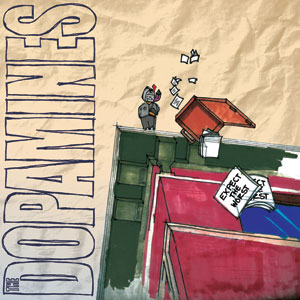
Labels: Paper and Plastick
Review by: james pacanowski
I wish I hadn’t gotten behind reviewing the albums Andy sent me. I resolved to get at least a couple done today and by unhappy circumstance the two I picked up to review were this and The Measure [SA]’s. I just got done reviewing The Measure [SA] and that already had me feeling down about the general state of pop-punk, but this has me feeling flat-out depressed. In the interests of full disclosure: I couldn’t make it all the way through this album any time I tried to listen to it – today included, despite my best intentions. However, given the music they play and the style which they play it in, I would be surprised if I would have been able to tell the difference if you had reversed the tracklist.
The problem with bands like this – and with events like Fest and Harvest of Hope; with labels like Paper + Plastick, Salinas, No Idea, et. al; with Punknews.org – the problem with all these things is that they’re perpetuating this idea that with enough songs about hating your job and your shitty tour van, it implies lyrical depth. And that with enough woah-ohs your music is somehow uplifting in spite of your bitching. That by having heard of a couple obscure 90’s pop-punk bands, that when you sound like everyone else you are still somehow unique. That as long as you encapsulate the cornerstones of the neo-pop-punk bible, i.e. being bros (even if you’re a lass), that you’re having enough ‘fun’ and you don’t give a shit about doing anything new, having a beard; as long as all these things are in place, then it doesn’t matter that what you do is being done by 3 million other bands. I call bullshit. There’s no reason pop-punk has to be the metaphorical hamster wheel. What’s interesting is that the few pop-punk bands of recent times I think are of any real merit (and who have done something of interest to the formula) “” Little Lungs and P.S. Eliot “” are female-led. I don’t really want to go too much into gender politics here when I have already gone way off tangent already, but there is something to be said about how the broken-hearted boys’ club that dominates contemporary pop-punk might be said to be leading to the genre going stale. Admittedly, it’s a genre with a very low ceiling for experimentation but I don’t think it’s wrong to think that there’s a little more mileage left in it. But with bands like The Dopamines keeping it in neutral, it’s not likely to get very far at all.